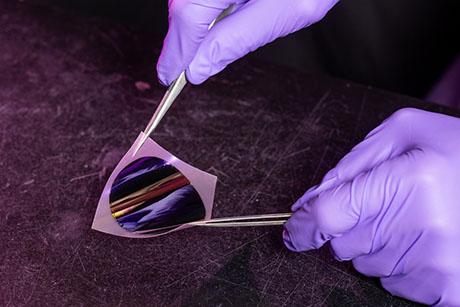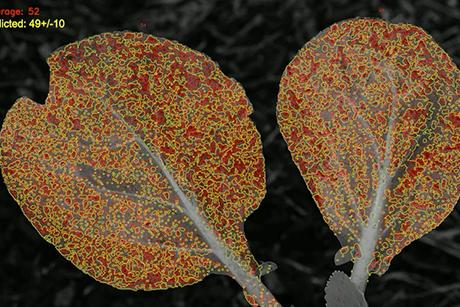Student Spotlight: Nikolai Begg
2013 Lemelson-MIT Student Prize Winner
by Stephanie Martinovich, Lemelson-MIT Program

Photo credit: Tony Pulsone
PhD candidate Nikolai Begg (SM ‘11) grew up in a box of LEGO® bricks and hasn’t stopped tinkering since. Today he is an accomplished inventor with a portfolio of novel medical devices and is a recipient of the prestigious 2013 $30,000 Lemelson-MIT Student Prize for his inventions that make surgical procedures less invasive.
Begg first became interested in medical device engineering during junior high school after studying surgical robots and realizing their profound impact on human health. Today he works with doctors and nurses across medical disciplines in hospitals throughout Boston to better understand how he can have a positive influence on medicine.
“Nikolai has a true appreciation for the importance of living a problem,” says Professor Alexander Slocum, Begg’s advisor. “In a field where the end user is often difficult to reach, Nikolai is frequently invited into operating rooms after exciting a passion in physicians who can see that he is motivated only by the opportunity to create something that will transform the way they work.”
A New “Gold Standard” of Safety in Surgical Procedures
Epidurals, intravenous catheter placements, and bone marrow biopsies are all examples of “puncture access procedures” in which a sharply pointed instrument, the puncture device, is used to create a pathway into the patient’s body. Despite puncture access being the first step in many minimally invasive procedures like laparoscopic surgeries, existing devices often plunge forward after breaking through tissue until the surgeon can react and stop applying force, posing a risk to any underlying organs.
Begg invented a puncture access mechanism with a blade that retracts at the moment it passes completely through skin tissue, after years of observing laparoscopic surgeries first-hand. A “force-sensing” instrument, the tip withdraws within 1/100 of a second. The mechanism, which is purely mechanical in nature with only a few parts, is scalable for use in nearly any medical puncture device. Begg also learned that in right kidney laparoscopic procedures, an additional incision has to be made to hold the liver and clear a direct pathway to the kidney. This additional step risks over-puncture, infection, and pain. He developed an incision-less laparoscopic retractor to address this challenge. Inserted through an existing incision, a suture stored within the device is passed out of the body and tensioned to move the organ out of the operating field.
An Ambassador for Invention
Begg’s personal passion for invention is just as important as working to inspire the same in others. He has used his knack for explaining complex technologies to serve as an active mentor throughout his time in MechE. As a graduate instructor Begg helps undergraduate students design, prototype, and refine novel devices to meet the needs of medical practitioners. He also worked with high school students at an MIT-sponsored summer design course to invent and build functional prototypes of devices to introduce exercise into the workplace.
“I believe in showing others that invention does not mean being smart enough to get it right the first time,” Begg says. “Creativity is powered by a willingness to learn and take risks.”
Bringing a New Face to Invention
“Nikolai Begg exemplifies the modern inventor,” says Joshua Schuler, executive director of the Lemelson-MIT Program. “Far from the image of a white-coat scientist at the lab bench, he follows his innate interests, immersing himself in them and collaborating with others to uncover opportunities to invent in every experience. By giving a fresh face to invention, he is inspiring others, including those who may not have ever imagined or believed themselves to be inventors before.”
Watch the video at http://techtv.mit.edu/videos/23011-2013-30-000-lemelson-mit-student-prize-winner


